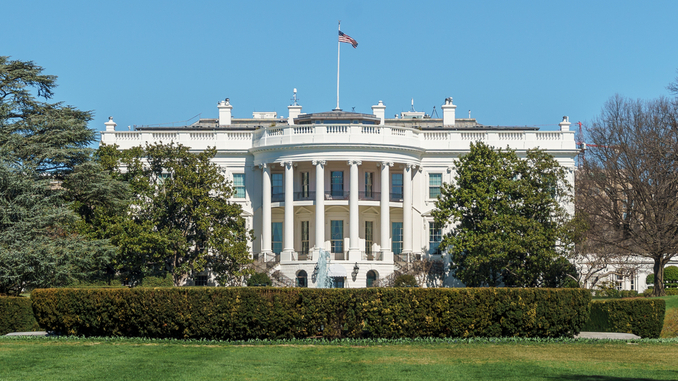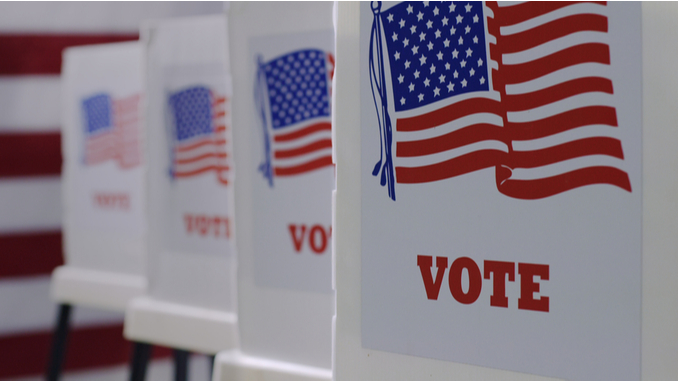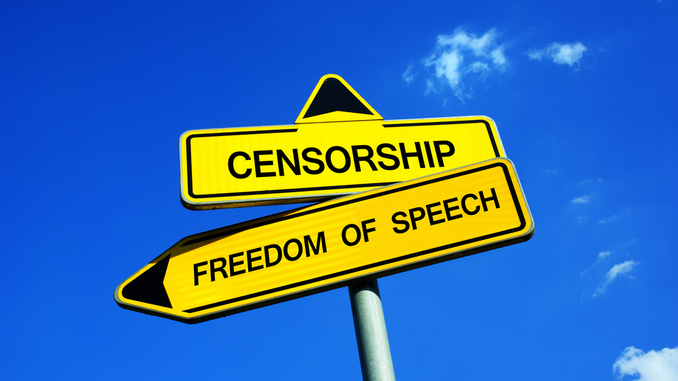
by Dr. Thomas Patterson | Feb 17, 2022 | Opinion
By Dr. Thomas Patterson |
When Joe Biden assumed the presidency one year ago, America had finally achieved energy independence. Iran was in chaos, fearing that its nuclear ambitions had been dashed. A year later, it’s America’s interests that have been dashed.
Biden campaigned on a pledge to rejoin the Iran nuclear accord and work on its weaknesses later. He seemed to believe that reinstituting deference and tacit assurances of eventual nuclear power status to Shiite Muslims would win concessions from the world’s leading state sponsor of terrorism. It didn’t work out.
Monitoring for compliance allowed under the treaty was notably lax. Still, at the end of 2020, the United Nations watchdog agency was investigating Iran for cheating on nuclear materials and production with a pending referral to the UN Security Council. Economic sanctions under the treaty had produced an economic crisis with mass protests throughout the country. Iran was reeling.
Biden came to the rescue. Instead of cracking down on Iran’s noncompliance with the treaty, he pressured America’s allies to pull back a censure resolution, sending a clear message to Iran that the US no longer minded that they were hiding nuclear sites and materials, in violation of the treaty and global nonproliferation agreements.
Iran immediately began investigating the new limits of America’s tolerance. The regime refused UN access to nuclear sites and increased uranium enrichment to 60%, far beyond the level required for peaceful nuclear power production.
Meanwhile, Iranians stepped up their violence in the region, including drone and rocket attacks on American forces. Biden not only refused to respond militarily to the terrorist attacks, but he ended support for a Saudi-led campaign against the Iran-backed Houthis and removed America’s defense missiles from Saudi Arabia.
As Iran accelerated its nuclear program and regional military aggression, Biden inexplicably helped avoid a financial crisis too. He suspended sanctions, giving Iran accessibility to frozen funds and to Chinese oil imports.
Iran is up and running. We better hope that the mullah are just kidding with their “Death to America” chants.
Biden’s response to America’s energy needs has been similarly woke and pathetic. At the conclusion of the Trump presidency, America had achieved energy independence for the first time in 50 years.
Trump encouraged the shale oil and gas revolution. He lifted restrictions on drilling, especially in remote areas. He permitted vitally needed pipelines. He blocked extreme environmental regulations that intentionally reduced our gas and oil supplies. As a result, America had surplus fuel supplies and no longer had to import oil from Arabs, Russians, Iranians, or Mexicans.
Biden promptly, inexplicably (simple Trump hatred?) reversed all the Trump policies when in office. We’re importing again. The economic cost of losing our energy independence is about $50 billion annually.
Now Biden has to grovel, unsuccessfully, with OPEC to increase production. Once again, we have to be mindful of our energy needs when dealing with foreign actors.
Moreover, even if you believe only massive carbon reduction mandates can keep the planet from burning, none of this affects climate change. The Biden reforms don’t affect which fuels we consume, only whether we buy them from our own producers or overseas, where power plants are often more polluting than ours.
America’s worst enemy could hardly have inflicted more damage than has our own president. In thrall to a tiny faction of far-left ideologues, Biden has suffered multiple other failures, too, including immigration, inflation, urban crime, and school closures.
Unfortunately, here’s where it gets partisan and divisive. The solemn duty of the Republican party is to remove this person and his ilk from office before they do more irreversible harm to the republic. That duty includes nominating the quality candidates most likely to win elections, which may not always be the ones most popular with Republicans.
In 2020, Trump lost an election to an exceptionally weak candidate who hardly campaigned and who was uninspiring even to his own supporters. Considering historical precedent and his record in office, Trump deserved to win in a landslide.
Instead he lost. Hard as it may be to accept, many voters wanted somebody, anybody who “wasn’t Trump.”
In service to their country and posterity, Republicans need to be more strategic, starting now. It’s important.

by Dr. Thomas Patterson | Feb 3, 2022 | Opinion
By Dr. Thomas Patterson |
On Fox News recently, the leader of an “anti-work subreddit” with over 100,000 followers, caused a stir by claiming that “laziness” was a virtuous lifestyle choice, which should be freely available. She depicted work as a form of oppression that the woke are justified in resisting in principle. The guest was a part-time dog walker who hoped to someday “teach philosophy.”
Shrug this off at your peril. Like many other threads now coursing their way through our culture (CRT, BLM, MMT, etc.), anti-work has deep roots in Marxist ideology.
In “The Abolition of Work,” Marxist author Bob Black decades ago argued that the only way for humans to be free is to reclaim their time from jobs, the “source of most of the misery in the world.” “No one should ever work.”
Instead, they should indulge in voluntary free play. Only thus could they avoid the subordination and degradation of the workplace. Nietzsche argued that work “uses up a tremendous amount of nervous energy and takes away from reflection, brooding, dreaming…”
It’s not just goofy dog walkers or cranky proto-communists in the anti-work bandwagon today. Relief measures implemented when our response to COVID dried up the jobs markets are no longer necessary, yet a great many Americans are simply disdaining a lifestyle that includes working. 4.5 million people quit their jobs in November alone. There are currently 12 million jobs available. Services are becoming harder to obtain, and empty shelves are popping up.
But work from the beginning has been a cornerstone of American culture. America and Canada were settled by Europeans who came to stay and create a better life. Land and other resources were plentiful here, but labor was scarce. So work was necessary to survive and prosper.
In Europe, idleness was admired. Gentlemen were hereditary landowners who believed work was a humiliating sign of failure, best left to the masses.
In America, by contrast, work was honored and rewarded. Common people could become landowners simply by “working” the land. Small farmers, shopkeepers and artisans, workers…all were the backbone of the economy.
DeTocqueville in the 1830s noted the astonishing industriousness of Americans. “An honest day’s work for a day’s pay” was the prevailing code of conduct.
With a productive private sector and a modest, non-intrusive government, America prospered unimaginably, transforming itself from just another British colony to a worldwide beacon of opportunity and prosperity.
But work provided more than material comforts. It endowed each worker with dignity, a sense of self-worth and personal agency. Each citizen could take justifiable pride in providing for and protecting their family.
During the Great Depression of the 1930s, many Americans dreaded material poverty less than the loss of dignity from not working. Written materials from that time confirm that severe economic hardship was considered temporary and survivable, but loss of dignity crippled the human spirit.
We now know that both economic prosperity and dignity eventually survived. But today the connection between work and dignity seems to be diminished. Dignity itself seems to have fallen out of style. Our leaders emphasize made-up rights, inequality, and income guarantees, but dignity is mostly ignored.
In the 1990s, the Contract with America implicitly established the notion that the Great Society welfare programs of 30 years previous had been a colossal failure. By disconnecting beneficiaries from work, they had consigned generations of Americans to lives of dependency and poverty of spirit.
The reforms enacted by the states consisted mostly of work requirements for able-bodied adults on welfare. Despite their success, over time the requirements have gradually been eroded by the hostile bureaucracy that administers welfare programs.
Now Democrats, once the party of work and workers, are seeking to eliminate work requirements altogether. Work is seen as an injustice that particularly minorities and poor people shouldn’t have to endure.
Unless workers work, there are no goods and services produced and the standard of living falls for all. A society where citizens vie to avoid work and live off the productivity of others, and where politicians scramble to accommodate them, is in danger. Ahead lies chronic economic weakness and vulnerability to tyranny.

by Dr. Thomas Patterson | Jan 21, 2022 | Opinion
By Dr. Thomas Patterson |
Democrats may have messed up on inflation, immigration, and Afghanistan, not to mention China, Russia, Covid, and crime, but they are determined to have a win over “voting rights.”
President Biden has declared it his number one issue, surpassing even climate change! With Americans becoming fed up with the Democrat governance, they see “voting rights” as their lifeline to future viability as a party.
So, President Biden echoes many of them when condemning voter ID. “There is an unfolding assault taking place in America today – an attempt to suppress and subvert the right to vote in free and fair elections, an assault on democracy, an assault on liberty, an assault on who we are as Americans.”
He further alleged that “bullies and merchants of fear and peddlers of lies are threatening the very foundations of our country.” He suggested that requiring ID is the moral equivalent of returning people to slavery.
The mantra is picked up and repeated millions of times. Outraged students conduct a hunger strike. Labor unions protest the loss of the franchise. Letters to the editor are filled with indignant condemnations of the Republican attack. Woke corporations punish Georgia for passing legislation threatening “voting rights” by moving baseball’s All-Star game to Minnesota.
But there’s one thing missing in all the heated rhetoric: any indication of what in the world they are specifically talking about, any evidence that one, even one, eligible voter would be unable to vote or be unduly inconvenienced by the election integrity legislation.
Their claims are belied by our own history and international comparisons. With 34 states involved in election integrity reforms, there are a lot of moving parts, but the sticking points are bulk mail voting and voter ID.
HR 1, the Right to Vote Act before Congress, which the Democrats and their Greek chorus in the media insist is critical to the preservation of democracy, mandates all states to allow bulk mail voting and categorically prohibits photo ID requirements.
But in 2005, the Carter-Baker Commission on Federal Election Reform examined these very issues. The bipartisan commission was headed by former President Jimmy Carter and former Secretary of State James Baker, a moderate Republican. They sensibly pointed out that absentee voting makes fraud more likely. Absentee voters are more likely to experience pressure and undue influence.
The Commission also concluded that vote buying schemes are far easier when citizens vote by mail. The commission proposed a uniform system requiring all voters to present ID as a condition of voting, like when entering the courthouse, flying in an airplane, or buying beer.
If the election integrity proposals are such a flagrant attack on democracy, then other democracies would not tolerate them, right? But the fact is the US is a distinct outlier among the world’s democracies in not requiring voter ID. Of the 47 European countries, 46 require government issued photo ID to vote, and the UK seems poised to follow suit.
By international standards, we also have shockingly loose rules for voting by mail. 35 of those 47 European countries don’t allow mail-in voting at all for citizens living in-country. 10 other countries allow absentee voting but require voters to appear in person with a photo ID to obtain their ballot. The practice of mailing out ballots in bulk either to all voters or those on a permanent list (Arizona’s practice) is unheard of.
In the US, ballots are typically mailed in bulk without requesting photo ID, no chain of evidence, no safeguards against improper influence or even selling, and then “harvested” for return to authorities.
This is tantamount to begging for fraud, even more so because perps know it would be largely undetectable. Entry-level reform, backed by 80% of voters, would require an ID to obtain any ballot, mail-in or otherwise
The wild charges about returning to Jim Crow and our democracy in peril are blatant scare tactics. Never in our history or anywhere else has there been more open access to voting.
This isn’t about stealing elections or justifying January 6. It’s about strengthening our democracy by assuring Americans they can have confidence in our elections and that their vote will count.

by Dr. Thomas Patterson | Jan 6, 2022 | Opinion
By Dr. Thomas Patterson |
The controversy over COVID management is not a medical disagreement but a political fight. It’s also a free speech issue, the question of whether those who disagree with the political/medical status-quo should be silenced.
Although we have learned more over time about the origins and development of COVID, there is no question it is a contagious virus that spreads primarily through respiratory secretions.
Infections range from symptom-free to fatal, but serious disease and death occur almost exclusively in the infirm and the elderly. Like all viruses, the coronavirus mutates, apparently into variants that are more contagious but less deadly.
So far so good. The disagreement is over its containment. Americans have become a risk-averse people, where nonsensical catch phrases like “if it only saves one life” and “in an abundance of caution” have supplanted sober cost/benefit analysis.
So, our government’s go-to solution for the pandemic was lockdowns for everyone. Commercial, social, educational, and other personal interactions were halted to stop the spread of the disease.
The results of this massive experiment in public health were disappointing. 800,000 Americans have perished. There may have been some benefit to “flattening the curve”—spacing out illnesses to avoid overwhelming healthcare facilities—but the total number of fatalities was not much affected.
Meanwhile the cost of the lockdowns was enormous. The federal government spent $6 trillion in COVID relief, much of it wasted or misappropriated. Moreover, virtually all of the handouts were debt financed, pleasing current taxpayers/voters but assuring that Americans will be struggling financially far into the future.
The collateral damage included over 90,000 “excess deaths” due to forced shutdowns of routine preventive and diagnostic care. There were sharp spikes in levels of depression, substance abuse, and overdose deaths, especially among the young.
The Great Barrington Declaration (GBD) in October 2020 was based on addressing these “grave concerns about the damaging physical and mental health impacts of the prevailing COVID-19 policies.” It recommended an alternative approach called Focused Protection.
The authors were respected physicians from Harvard, Oxford, and Stanford with 91,000 additional professional endorsements, including from a Nobel prize winner. Their paper noted that vulnerability to death from COVID-19 was over 1,000 times higher in vulnerable populations than among young people. For children, COVID-19 is less dangerous than many other harms, including influenza.
Thus, it made sense to protect vulnerable populations if anything more vigorously, while reopening schools, businesses, and restaurants with reasonable precautions. Both overall mortality and social harm could be protected until we reached herd immunity.
In a society based on reason and open inquiry, this proposal would at least have received serious consideration. Instead, the Trump-hating media erupted in withering denunciations and cancellations.
Worse, recently obtained emails reveal that our “follow the science” authorities intentionally thwarted the dissenting viewpoint. Then-director of the NIH Francis Collins wrote Anthony (“I am the Science”) Fauci that GBD seemed to be getting some attention. “There needs to be a quick and devastating takedown of its premises. Is it underway?”
Fauci answered in the affirmative. Soon after, he informed The Washington Post that GBD was a fringe operation. “This is not mainstream science. It’s dangerous.”
Several media outlets ran with criticisms by Fauci, who completed the cycle by citing their articles in his talking points. Facebook pitched in by censoring any references to GBD. It was the dreaded “misinformation.”
Focused Protection never got traction. But shutting down open dissent in favor of political agendas has produced tragic consequences. In spite of Fauci’s claim in October 2020 that the draconian remedies were temporary, when caseloads rose the next month, shutdowns were resumed.
Hard data is never available on the path not taken, but it’s undeniable that the costs of following the Fauci/Collins strategy were staggering: unbelievably enormous federal outlays, shattered businesses, untreated illnesses, suicides, and devastating educational achievement losses.
Let’s be smarter with omicron. Let’s vaccinate and medicate, protect the vulnerable but avoid panic and unnecessary disruptions in our lives.
The Great Barrington Declaration, the responses, and consequences are a reminder of the practical importance of free speech rights. Better decisions are made when all sides are heard out.

by Dr. Thomas Patterson | Dec 23, 2021 | Opinion
By Dr. Thomas Patterson |
In 1952, Dwight Eisenhower announced he was a Republican 10 months before the general election. In June, he resigned his military office to devote full time to his presidential campaign.
Adlai Stevenson was already a Democrat by 1952 but resisted multiple efforts by Democrat partisans to nominate him as their candidate. After his stirring speech at the convention that summer, they did so anyway. Three months later, a president (Eisenhower) was duly elected.
Modest candidates and brief campaigns are now in our receding past. The 2020 presidential race lasted 1,194 days after the first candidate declared. The 2024 election, for practical purposes, started immediately after the previous election. Fully three years out, news and opinion outlets are brimming with the latest poll numbers, candidate statements, and expert speculation.
No other nation subjects itself to such an exhausting ordeal. Elections in Canada, the UK, and Australia all last about six weeks. In Japan, they get it done in 12 days.
Admittedly, these are parliamentary systems where elections are triggered by political events, but France gives candidates just six months to qualify for the second-tier ballot, then two weeks to campaign in the finals.
American campaigns weren’t always ultramarathons. Warren Harding, for example, announced his candidacy 321 days before the 1920 election. Most American presidential candidates operated under a similar timeline.
The “modern” era began with the contentious 1968 Democrat convention when the party rank-and-file wrested control from the smoke-filled rooms, and the popular primary system was established. In 1976, the obscure Jimmy Carter was able to build momentum in the primaries by campaigning early. Ambitious politicians ever since have taken note.
But super-long campaigns have consequences, most of them undesirable. The most obvious is that length favors deep pockets, the ability to finance a years-long, money draining effort.
Few candidates can self-fund. Instead, they have to spend immense amounts of time and do a lot of promising to raise the many millions required for the campaign. Many political leaders are distracted from their duties by the minutiae of campaigning.
Never-ending campaigns simultaneously exhaust and entrance voters. Competitions are naturally interesting and easy to understand. It’s simple and inexpensive for the media to churn out horse-race stories, so NATO, supply chains, and housing policy get short shrift while mountains of articles are written about the prospects of the candidates far in the future.
It has long been a truism that more challenging, risky issues are harder to tackle in an election year. But if every year is effectively an election year, then it’s never the right time for heavy lifting.
Instead, governing in the midst of a campaign creates constant pressure to “do something,” so that politicians appear active and effective. Populist policies and handouts which favor the growth of government are thought to attract voters. Moderation and fiscal restraint don’t sell well, so they are kicked to the curb.
The Build Back Better bill was the perfect campaign legislation, something for everyone. No wonder Democrats are panicked over the electoral consequences of its possible failure.
But long campaign seasons also have their clear winners. Potential candidates are already dropping by Iowa, New Hampshire and South Carolina, which happen to be crucial early primary states just to, you know, see how the folks are doing.
These states fiercely protect their primary position and with good reason. Iowa particularly has successfully exploited the candidates’ need to ingratiate themselves into the long-term protection of ethanol mandates, regulations and subsidies. It’s foolish policy with no environmental or other benefit except to corn farmers and producers, another result of our long and complicated presidential elections.
Compared with other countries, the U.S. has a short presidential term and an unusually long election process. This near constant turnover lengthens the period in which we are vulnerable to foreign actors exploiting us for their benefit.
Other democracies have laws which limit elections. Exactly nobody is clamoring for longer elections in those countries. Still, politicians are unlikely to reform their own system.
In the absence of other options to rid ourselves of these expensive, dysfunctional election campaigns, maybe we should take a look.





